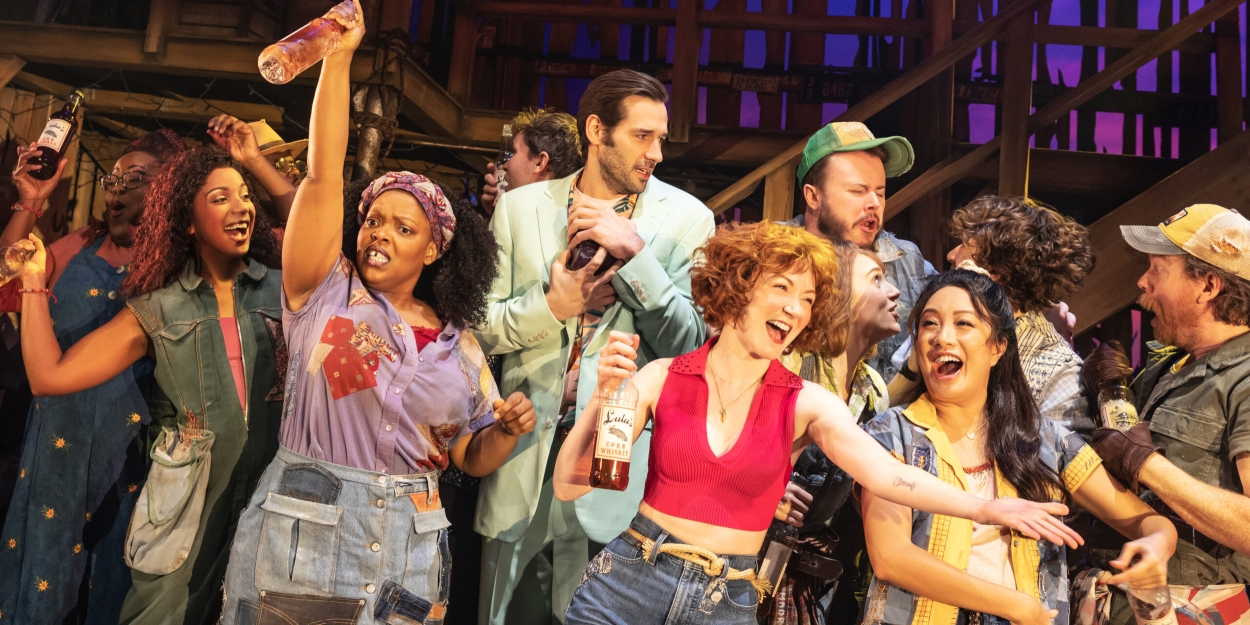Should SHUCKED's Unusual Path to Broadway Be Replicated?
The show tried out in Utah, not exactly a state well-known for launching Broadway hits.

When SHUCKED opened on Broadway last week, it marked the first time a musical that tried out in Utah made it to the big time. We hear a lot about the more mainstream regional tryout venues--La Jolla Playhouse, The Old Globe, 5th Avenue Theatre--but very few producers utilize lesser-known non-profits to try out their shows.
"Pioneer Theatre ticked off a lot of boxes for us," SHUCKED lead producer Mike Bosner said. "It was kind of this hybrid version of a workshop and a big out-of-town production. We got two and a half weeks in front of an audience, which is not a typical run that you would get at La Jolla or anywhere like that. It didn't cost nearly as much as whatever that would have cost, or a workshop would have cost, and it allowed us the opportunity to not be under the microscope like you are at those other theaters."
Since the rise of social media, producers have been grumbling about the amount of attention they receive during out-of-town tryouts. It feels impossible to develop a show under the radar if known talent is involved. The exceptions seem to be when the shows are at less high-profile theaters.
Mega-producer Daryl Roth developed her musical version of the Jodi Picoult-Samantha van Leer novel BETWEEN THE LINES--which hit off-Broadway last season--at the Kansas City Repertory Theatre.
"When looking for an out-of-town theater, it's important to find a safe harbor where there will be dramaturgical support, a receptive audience, and a good working environment for the creative team," Roth stated. "The artistic director [at KC Rep] at the time was someone I knew and admired for his dramaturgical skills, and I loved that the theater was on a university campus... Also, the cultural community in Kansas City is very strong and supportive of new theater."
While in development, BETWEEN THE LINES escaped much of the press attention it would have received if it had been presented on a coast. Of course, there is a flip side to that. Some producers seek out higher-profile engagements for multiple reasons. One is, given the importance of critical reception in New York, some are of the belief that tougher critics (and audiences) out-of-town are more helpful in developing a piece. Another is artistic staff support--the theory goes that theaters more used to dealing with tryouts are better at it. And then there is location: it's often easier to sell San Diego than Salt Lake City to artists.
Still, there is a lot to be said for utilizing more of the country. Not only will you be able to leave less of a footprint, there is also cost to consider. Bosner explained the SHUCKED stint at the Pioneer was half of what a workshop in New York would have been and considerably less than half of what a full tryout at a major regional would have been.
"They paid for almost everything," Bosner said. "Where I would be enhancing is to bring out our creative team, and, they are able to use a certain amount of non-equity actors, but we paid to have additional equity actors. Small things."
Now, Bosner treated the Pioneer as a quasi-workshop, in the sense that the intention was to run through the show, not to get the entire physical production down. (SHUCKED, which was in development for a decade, already had its money, so selling a final product was not a factor.) Part of the reason runs at major regionals cost millions is because much of the physical production is built and tested (which then saves some money later if a transfer happens). But it is well known that more well-known theaters are also simply requiring more enhancement money than ever before. Commercial producers are footing the bill for almost everything. That might be worth it in some cases, but not always.
Videos


